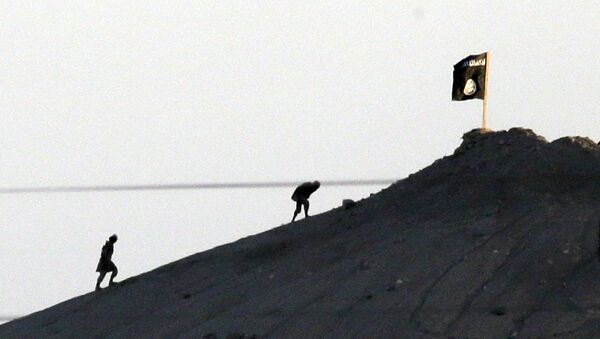Sputnik: The recent attack in the US, was it a failure of intelligence services?
David Otto: These types of “man and van” attacks are now very common. We have seen these attacks happen in Europe, for example, it happened in Berlin, Nice and recently in London. The US and its European allies have become clear enemy number one for groups like ISIL and Al Qaeda. It also applies to their affiliates and those who are inspired by the Salafist ideology to then attack them. So in essence it is not a surprise, considering that the US is also going through a period where they're celebrating Halloween and ISIL had actually put up in one of its magazines the fact that it is encouraging to its followers to carry out attacks during this period. So I think it was a warning that should have been seen, but could the CIA or the intelligence services stop this? I think it is quite difficult. For that you would expect the intelligence services to have the required capacity because in order to stop “man and van” attack it requires technology that can predict a human mind and I don’t think that we do have kind of technology at the moment.
We have to understand that these attacks are very spontaneous. They are extremely cheap as we can see it can cost $19 to rent a truck for one hour and it doesn’t require any kind of sophisticated planning or preparation. It is beyond the security architecture to be able to prevent these kind of attacks by individuals.
Sputnik: Do you think this marks the start of the increased activity for terrorist attacks in the United States? Do you think there are more sleeper cells here than the US is aware of?
David Otto: The current US administration under Donald Trump has this policy of “we want our country back.” But the contradiction to that is that the US has its military, has its interest, its people who are stationed all over the world. Now this rhetoric, which the US administration is using, saying “we want our country back” creates the same kind of rhetoric that ISIS promotes, in terms of us and them. While this policy may have been very good during the campaign period and may have as well won the presidency for Donald Trump, I think what it is doing in effect is that the US is now creating more enemies abroad. When in practice it is a very multi-cultural society where people from different areas, different countries that have been affected by this recent ban are now quite unhappy with the way the US foreign policy is. And because of that groups like ISIL and Al Qaeda would see this as an opportunity for them to keep on pressing on the issue of the far enemy and the near enemy, which is the United States and its allies.
So while the US may want to retract from this policy of “we want our country back” and from the policy of banning other countries from travelling to the US, while US members are travelling to other countries and the US has military bases in other countries, I think without that we would then see a situation where it is a matter of having the right opportunity to strike. So you would then have sleeper cells who have been in the US looking for an opportunity and groups and their affiliates from the outside of the US trying to make sure they can attack interests of the US. I think we did see that recently on October 4 when US berets were killed in the village in Niger known as Tongo Tongo; this is an expression of some of this rhetoric that the United States is using. For example, it put Chad as one of the countries that has been banned from travelling to the US when indeed Chad is one of the strongest counterterrorism allies to the US. So I think there is a lot of contradiction going on here.
Sputnik: President Trump’s intention is now to tighten the refugee admission program, but what other steps could Washington potentially take to tackle this security problem?
David Otto: The best way to do that is for Washington to have a community-based strategy where the people are seen as part of the solution, providing solutions to the state. They have to be able to trust the security authorities to be able to provide them with information: see something and say something. If you have tightening of policy, whereby you are banning people from coming into the country because they come from a Muslim state that in itself would be counter-productive. It is not about security, it is about winning the hearts and minds of the people so that you can get the best information when the time comes for that information to be released to you.
David Otto is a counterterrorism and organized crime expert. He is a director of the Tgsintconsultant, a consultancy firm focused on security and intelligence.


